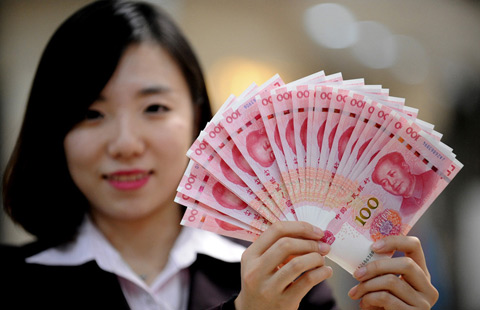Insurers allowed to invest in Hong Kong
By Li Xiang (China Daily) Updated: 2016-09-10 07:10The insurance regulator will allow mainland insurers to invest in Hong Kong stocks through a trading link with Shanghai, a move which experts say would help diversify insurers' investment risks.
The liberalization came as insurers suffered a sharp profit decline in the first half of this year, down by 54 percent largely due to the stock market volatility, according to data from the regulator.
The move also underscores the regulator's effort to lower investment barriers for mainland institutions that are facing a shortage of assets that yield sound returns amid an economic slowdown.
"It is certainly good news for the insurers since they are demanding more investment channels to better allocate their surging premium revenues and to diversify investment risks," said Chen Guoli, vice secretary-general of the Insurance Asset Management Association of China.
Led by financial stocks, Hong Kong shares rallied on Friday on investors' anticipation that more mainland capital would pour into the market. The Hang Seng China Enterprises Index of mainland companies listed in Hong Kong gained 0.5 percent on Friday and 3.8 percent this week.
The China Insurance Regulatory Commission said in a statement on Thursday that mainland insurance funds will be allowed to invest in Hong Kong shares through the Shanghai-Hong Kong Stock Connect program. The regulator did not specify when the insurers could start such operations.
The CIRC said that the purpose is to broaden investment channels for the insurers and to help ease their asset allocation pressure by granting them greater flexibility. The new policy will also help boost their investment returns, the regulator added.
Under current regulations, insurers can invest up to 15 percent of their total assets overseas. Haitong Securities Co estimated that the mainland insurers' overseas asset accounted for only 1.9 percent of their total assets by the end of last year, meaning that further liberalization could help unleash a huge investment potential.
The move to permit insurance funds to invest in Hong Kong shares came after the regulator last month scrapped the overall investment quota under the trading link between Shanghai and Hong Kong, while retaining a daily quota limit.
Xiong Ying, an executive at Huatai Asset Management Co Ltd, a subsidiary of Huatai Insurance Group, said that the latest regulatory liberalization will help optimize the investment portfolios of insurance funds by expanding their investment scope.
"But in the short term, it is unlikely that a huge amount of capital will pour into the Hong Kong market, as it takes time for the mainland insurance funds to explore and learn the market," Xiong said.
Wang Hanfeng, an analyst at China International Capital Corp Ltd, said that the move will likely boost the prices of the dual-listed stocks in Hong Kong as they are now traded at a discount to their Shanghai-listed counterparts.
Mainland insurers previously could invest in overseas equities markets only under the Qualified Domestic Institutional Investors program, which is subject to a quota.
The Chinese government has been gradually liberalizing overseas investment for mainland investors. Last month, a trading link between Shenzhen and Hong Kong was officially approved.
- China Railway Express takes Tibetan products to Europe
- Consumer inflation still falling
- New center to build up robot parts capabilities
- Insurers allowed to invest in Hong Kong
- Air France-KLM CEO confident of rebound in 2017
- BYD launches Europe's biggest all-electric bus fleet
- Aotu Personalized Education gets tens of millions of yuan in financing
- Overseas analysts hail China's role in G20

















